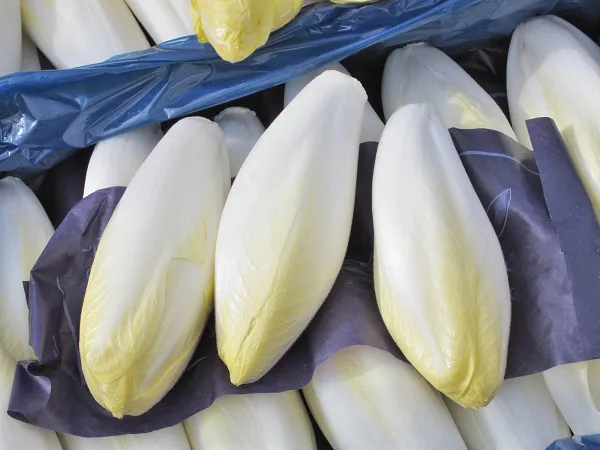2022 was a painful year for the endive sector and producers are “tired but resilient", according to Stéphane Jacquet, general manager of APEF. Pushed to the limit by the excessive increase in energy prices, the growing list of banned active substances (including the latest ban on benfluralin) and water management problems, French endive producers have been warning for over a year about their economic difficulties and the risks of a gradual disappearance of the sector. Some producers have even decided to stop their activity. “It is difficult to put a number on it but volumes are disappearing. Yet, the sector is still striving to find solutions to preserve itself and relieve the producers.
“162,000 euros of electricity for 2 months”
“One of our producers, for example, had an electricity bill of 162,000 euros [174,663 USD] for the months of January and February 2023 alone, compared to 157,000 euros [169,272 USD] for the entire year of 2021!” A real blow that can be explained by “the contracts signed at the end of 2022 for 500/600 euros [539/647 USD] per MWh,” explains Stéphane Jacquet. “Passing this increase onto selling prices is completely impossible.” This is why, on the 20th of March, the APEF met with representatives of EDF and the DDFIP, in charge of reporting problems to the French Ministry of Agriculture, in order to discuss possible aid and a renegotiation of the energy contracts.
 This year, Stéphane Jacquet explains that “the upstream campaign is complicated. The drought and frost, in the middle of the root removal phase, have reduced the yields.” For the coming year, the APEF expects a decrease of “10 to 15%”. On the market, the reduced supply is adapted to the demand even if there is a general downward trend compared to other years.
This year, Stéphane Jacquet explains that “the upstream campaign is complicated. The drought and frost, in the middle of the root removal phase, have reduced the yields.” For the coming year, the APEF expects a decrease of “10 to 15%”. On the market, the reduced supply is adapted to the demand even if there is a general downward trend compared to other years.
A sector in transition
“We are going to do everything we can to participate in the discussions with Interfel,” explains Stéphane Jacquet about the food sovereignty plan announced by Marc Fesneau in early March. Energy, water, climate, phytosanitary measures... The sector wants to renew itself and is looking for alternatives in all areas. Among the possible solutions, the association wants to turn to photovoltaic technology and is working on water management in the field and the forcing chambers.” Regarding the molecules, it is working on viable alternatives and on "the oxygenation of water in the tanks to limit the use of fertilizers.” New, more resistant varieties are also being studied to fight diseases and drought. Research and development work is being carried out with the support of the experimental research station, “in partnership with producers.”
“More dynamic” communication campaign in 2023
“In addition to these actions, we continue our general communication campaign which will be more dynamic this year! The campaign will take place on social networks, at hospitality schools and culinary competitions, with the participation of an ambassador whose name has not been revealed yet. “This personality of the culinary world” will be in charge of sublimating the endive and seducing consumers.
For more information:  APEF
APEF
2, rue des Fleurs
62000 Arras
Phone: 03 21 07 89 89
endive.fr
contact@endive.fr
